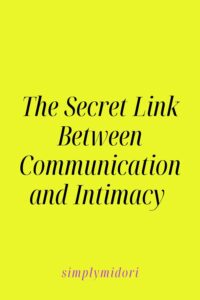Marriages and other love relationships are special because they are uniquely and reciprocally intimate. They are supposed to be affectionate, enduring, loyal, loving, and also sexual, erotic, passionate, and romantic.
The glue of of everything in a marriage rests on one word: trust!
Without trust, how can respect and love truly flourish?
What does lack of trust do in a relationship?
When you cannot trust your romantic partner, you can never feel entirely at ease in their presence; doubt will taint every perception of them and their actions, as well as every interaction you have with them.
If this goes on for too long, the relationship will become defined by suspicion and betrayal—not by respect or love, as any connection should be.
Anyone who has questioned their partner’s intentions or disbelieved their partner’s promises knows how horrible those feelings are. Suspicion is a snake, slithering its way into your mind and your heart.
It hisses to you of insecurity, anger, and fear, louder and louder, until you cannot help but believe it. The snake wraps itself around you and squeezes until you can no longer breathe. By then, whether the suspicion is deserved or not, the relationship is suffering; you simply can’t mistrust someone and simultaneously give of yourself to them in the way any good relationship demands.
Suspicion has a way of tainting every relationship in our lives, ones we’d never questioned before. The erosion of trust leads us to believe true human connection is pointless and even dangerous, because it becomes painfully clear that by caring for another, you open your heart to them; and they have every opportunity to hurt you, should they so choose.
By that point, not only do you sabotage your own relationships with your suspicions: you sabotage yourself, closing yourself off from the joy and fulfillment of respecting and loving others, and being respected and loved in return.
By expecting the worst, you cannot see, cannot appreciate and cannot believe the good. Once you’ve had your trust broken in the past building trust in a new relationship feels almost impossible.
Can a relationship survive lack of trust?
What Is Trust In A Relationship?
Can we quantify the amount of trust a relationship has? Can we define it? More importantly, how can we build trust in a relationship?
Trust in a relationship is our partner thinking positively about us, especially when we’re not together. If trust were an action it would be a partner nurturing almost a fantasy idea about us, where we can do no wrong.
Furthermore we show trust in a relationship by believing that our partner has our interests in mind, even in disagreements.
If we tried to quantify trust we would use the following scale:
When the trust is high enough in the relationship, both people transcend apparent limits (in our mind), we believe the best about them and constantly discover new and awesome abilities in them.
When the trust is low in the relationship, both people are awful and we believe the worst about them and constantly discover more things we dislike about them.
Before we dive into how to build trust I want to talk about another type of trust: intimate trust!
Intimate trust is a trust that nurtures the fantasy that our partner is unique, special, and meant to be cherished.
Related Reading: 15 Ways To Make Your Partner Feel Loved
Now let’s dive into how we can develop trust or fix trust issues in relationship!
How to fix a trust issue in a relationship?
1. Build Trust By Using Conversations
Conversations bring people closer, they reveal our feelings, thoughts, ideas and allow us to communicate them to form a deeper connection with our partner.
Conversations develop trust within women.
The overwhelming majority of couples agree with the statement that “most women want sex when they already feel emotionally close or on the same page, but for men sex is a way of becoming emotionally close.”
When couples use open communication, sharing all the details about a plethora of subjects they establish trust. Feelings of trust tend to be built in small moments such as when we show up for each other, listen when our partner is upset and when we prioritize our relationship over other people and things.
It’s these little nuances that act as a building block to cultivate emotional intimacy, which is the basis for trust in a relationship and the key to greater physical intimacy.
As we study and interact with couples the ones that practice intimate conversations view moments of emotion or high stress in themselves or their partner as an opportunity for intimacy and greater understanding of each other’s inner worlds.
How can we create intimate conversations in our relationship?
There are four characteristics of an intimate conversation:
-
being able to identify in words what one is feeling
-
both partners asking open-ended questions
-
using statements that follow up on the answers to these questions by probing for a deeper understanding of one’s partner’s thoughts and feelings
-
using statements of compassion and empathy to express understanding of one’s partner’s thoughts and feelings
Related Reading: Questions That Build Intimacy
2. Build Trust By The Power of Touch
We are, unfortunately, a very low-touch culture. Psychologist Sydney Jourard studied how many times people touched one another when they were out to dinner in several cities. In Paris the average number of times people touched one another in an hour was 115 times. Mexico City averaged 185 times in an hour. In London zero. In Gainesville, Florida, two.
Words are not enough for establishing intimate trust.
University of Miami psychologist Tiffany Field developed a touch institute to study the power of touch. She developed an interest in touch after she gave birth to a premature baby. She noticed that these babies were in incubators and that parents were prevented by hospital staff from touching the premature newborn babies.
Field thus created incubators that made it possible for parents to make eye contact and affectionately touch and deeply massage their newborn babies. The intervention was powerful.
The parents felt more connected to their newborn, and the babies who were massaged by parents gained 47% of their body weight in just 10 days! These babies were able to leave the hospital and go home with their parents much sooner than babies who weren’t touched.
Massage and other forms of touch aren’t just powerful for babies. Field also discovered that just 15 minutes a day of massage by a husband of a woman who was suffering from postpartum depression was as powerful as antidepressant medication.
Furthermore, 50% of the women studied stopped taking antidepressant medication after a year, against medical advice, but did not stop massages, found their depression did not return.
Touch literally kept partners on the same page after the baby arrived and built emotional connection. Field’s recommendations are a central part of workshops that focus on maintaining intimacy and reducing conflict among parents who had just had a baby.
Furthermore we now know, affection, massage, cuddling, and other forms of intimate touch are also events that stimulate the secretion of oxytocin in us. Oxytocin is a hormone that builds trust and makes use feel secure and safe with our partner.
3. Build Trust By Avoiding Me Vs. Them
During conflict we tend to see our partner as an opponent, and ourselves as all positive, as if we have not and could not do any wrong. Furthermore we tend to see ourselves as having very few negative traits, little negative history with our partner, and few, if any, negative qualities.
The dynamic we create forces us to view our partner as having only negative traits. This is related to social psychologist Fritz Heider’s idea that all humans tend to make the fundamental attribution error: in other words, I’m okay; you’re defective.
Such is human nature.
We all think we are the central character of the Great Play of Life and everyone else is a minor player. As a result, most humans are very forgiving toward their own mistakes and less forgiving of the mistakes of others.
How to avoid the me vs. them dynamic
-
When we identify a negative quality in our partner, try to see that very same quality in ourselves.
-
When we identify a positive quality in ourselves, try to see that very quality in our partner.
To use these suggestions we may try thinking, The two of us want the same things or He is a great father or She was very nice to me when I was last sick or It’s true that I think she is being selfish right now, but so am I.
These actions will allow you not to create a hero complex in yourself and avoid making your partner a zero that only has negative character traits. This simple exercise can be a fundamental building block to build trust in a relationship.
Related Reading: How To Go From Me To We
How do you trust your partner?
1. Are You There for Me?
In relationship counseling when a couple faced any type of conflict their discussions were fights about questions such as:
-
Can I trust you to choose me over your friends?
-
Can I trust you to choose my interests over those of your parents?
-
Can I trust you to care more about this relationship than about yourself?
-
Can I trust you to be home when you say you will be home?
-
Can I trust you to be motivated to earn money and create wealth for our family
In these arguments one person is asking 1 of 2 questions:
-
If they truly see their partner’s real character, which refers to a kind of transparency.
-
If their partner was really there for them when it mattered most.
If the answer is yes to these questions a partner will feel secure and believe their spouse has their best interests at heart. The combination will build trust and this trust helps overcome obstacles.
2. The Two Dimensions
Most couples colloquially described trust in terms of two dimensions.
The first dimension referred to transparency: a partner trust that the other will keep their promises and do what they say they will do. This dimension is the opposite of lying and deceit (which is where trust breaks). In this scenario trust means that they need to be able to count on their partner to be a truthful person who is what they appear to be within the relationship.
However, there was more to trust than just that—no one would be happy, for example, with an evil partner who was nevertheless truthful about his or her evil intentions and evil acts. This means that trust is about more than just truth, honesty, and transparency.
This leads us to the second dimension of trust: positive moral certainty about the partner.
We must have a confidence and knowledge that our partner is an ethical, moral person—a good person, someone who will treat us and our family members with high moral standards, integrity, honesty, kindness, love, and goodwill.
This second dimension of trust is about our partner’s intentions, motives, and actions toward us. It’s about the questions:
-
Where do I fit into my partner’s motivational scheme?
-
Do I come first in some important sense, compared to other people or my partner’s goal, or do other things take priority over me?
You partner loves if the answer is 1st. Both people being a priority in a relationship means they have mutual respect and are likely to have a long lasting relationship.
What Are The Signs That You Lack Trust In A Relationship?
Just like there are ways to build trust in romantic relationships there are ways to lose trust. We know most of the things that erode deep trust in a relationship: poor communication, not spending time together, not paying attention, constantly talking about a previous relationship, one partner lacking good intentions the list goes on and on.
We went on a search to understand what relationship experts believe causes one partner feel insecure to the point where the relationship ends or the couple decides to get a divorce. Below we explore what breaks trust in a relationship. If your relationship has these signs you should attempt to rebuild trust in a relationship before it’s too late:
What Breaks Trust In A Relationship?
1. More Negativity than Positivity
Relationships that have a positive to negative ratio of 5:1 have great odds. Couples can use this ratio when attempting to rebuild trust. However when relationships have a 1:1 ratio a person’s ability to focus on the positive aspects of the relationship start to wane, and divorce becomes inevitable. Before a couple or clinical psychologist declares war on negativity, know that negativity is necessary in relationships.
For example, negativity can eliminate interaction patterns that don’t work. Plus a relationship without any negativity would be a living hell. Trust enables good relationships to handle all emotions, not just the happy ones.
However, positive comments from the very beginning create a strong foundation for relationships to thrive.
Imagine a salt shaker filled not with salt but with all the ways to say “yes!” (things like: good point, I see, yes, that makes sense, tell me more, you’re starting to convince me, I never thought of it that way, if that’s so important to you let’s find a way to make that happen, say more about how you feel and what you need, and so on). When a partner in the relationship uses this salt shaker in their interactions, they build trust allowing the other partner to feel safe.
Conversely, imagine a salt shaker filled not with salt but with all the ways to say “no!” (things like: “that’s ridiculous!, no, that is so foolish, you’re ignorant, you’re making no sense, be logical, shut up!, stop talking, you’re an idiot, you’re a jerk, how can you be so insensitive?, you never have cared about me, you’re so selfish, and so on). When a partner in the relationship uses this salt shaker in their interactions, they do not build no do they make their partner feel safe.
The bottom line
Relationships need to have at least a 5:1 ratio of positivity to negativity especially during conflict—if the relationship to work out.
2. Escalating Conflict
If in all your dealings with your partner you use criticism, defensiveness, contempt, and stonewalling, you will quickly create trust issues and cause your partner to start focus on their own needs.
These 4 things are part of the pattern of how we escalate to negativity. In the 1970s we were previously unaware that even healthy relationships incorporated anger and conflict.
But we now know that even in happy and healthy relationship, when one person gets angry and hostile, the other person typically reciprocates in kind.
The difference between the relationships that work versus the relationships that don’t however is how much trust in a relationship previously existed. If the couple has spent time building trust, admitting mistakes, having healthy communication they know the apparent limits for the conflict.
If a both partners do not feel safe and have not spent time building trust chances are the couple will not have personal boundaries during conflict and will escalate negativity to places that further said trust issues.
The Gottman Institute found that couples who use escalation on average divorce after about 6 years of marriage.
Related Reading: How Escalation Leads To Divorce
3. Turning Against Each Other
Some couples don’t escalate conflict, instead they have little, if any, positivity at all during conflict (no open communication, affection, shared humor, question asking, active interest, excitement, joy, support, empathy).
The Gottman Institute found these couples divorced on average after 16 years of marriage. Subsequent research discovered that this pattern was related to a negative style in everyday interaction that we call turning against bids for emotional connection.
In successful relationships when a partner tries to emotional/physically connect the other partner responds in an affectionate loving way. However when someone turns against their partner, they use cold body language and ignore their partner’s feelings entirely. Instead they respond in a crabby, irritable manner and the relationship gradually erodes.
4. Failure of Repair Attempts
You could potentially read everything and believe that you shouldn’t fight in a relationship. However our goal is not to have people no longer fight in a relationship, even if the fights are painful and alienating.
We can even go one step further and say we do not recommend two people avoid hurting each other’s feelings, or avoid the times where one does not respond to each other’s needs for emotional connection in a relationship.
What we do wish is that when people have those inevitable fights, dis-honest communication or hurt feelings, they take a minute after to repair the relationship.
Regrettable incidents in interactions are simply par for the course.
The goal is to be able to heal the emotional wounds created by those incidents.
Either partner must decide to communicate openly enabling the other to listen actively and together trust develops. The reconciliation is fundamental after a fight as it helps end the potential onslaught of creating a me vs. them dynamic.
Related Reading: How To Resolve Conflicts
5. Negative Sentiment Override
Robert Weiss defined the concepts of positive and negative sentiment override.
In a negative sentiment override, if an observer viewed the relationship they would say that a person communicated from a neutral standpoint. However the partner that received the communication would see it as negative. (Hence, a negative sentiment overrides a positive interaction.)
In a positive sentiment override, if an observer viewed the relationship they would say that a person communicated from a negative standpoint. However the partner that received the communication would not interpret it as negative, or at least not take it personally.
Trust issues are the subtext in negative sentiment override causing people to view everything with a negative lens no matter the interaction. What’s worse is that over time people start seeing their partner as having negative traits, such as being selfish, insensitive, or mean.
When people are in a “happy” relationship, both observer and partner are in agreement with one another regarding the number of times the partners’ behavior was positive. But when people are in an “unhappy” relationship, the partner only saw 50% of their spouse’s positive behavior toward them.
6. The Reel
A fairly universal finding is that after an argument men are more likely to rehearse distress-maintaining thoughts (playing the argument, the words, the statements over and over). When a man faces conflict their heart rates become high and they start secreting adrenaline.
As a result they can’t process information very well, don’t have access to their sense of humor, or their creativity. The argument is replayed in their heads causing them to become angrier and more aggressive.
If a person is conversing in this state they will want to flee or become very defensive. Psychologists have discovered that it is very important to take breaks and self-soothe when flooded. If a couple wants to build trust post conflict they should learn to take breaks and use relaxation instructions.
Conclusion
Trust is one of the most important components for a lasting and successful bond. Without trust, any hope of success is undermined. It can be difficult to navigate a relationship where trust has not been built between two individuals, but it doesn’t have to be hopeless.
Building trust is possible through the use of meaningful conversations and touch and by avoiding the me vs. them dynamic that so many relationships struggle with. Identifying if trust exists between two partners can be done by asking oneself if they feel secure in their partner’s commitment, if they can turn to each other during times of conflict, and if they are able to positively move forward even after mistakes were made.
If you find yourself struggling with an absence of trust we suggest trying some of the tips we discussed above and explore methods such as counseling to help promote communication and restore your faith within the relationship together.
Thanks for reading our blog post and please don’t forget to comment, share, sign up for our newsletter or come back tomorrow for more helpful content!












